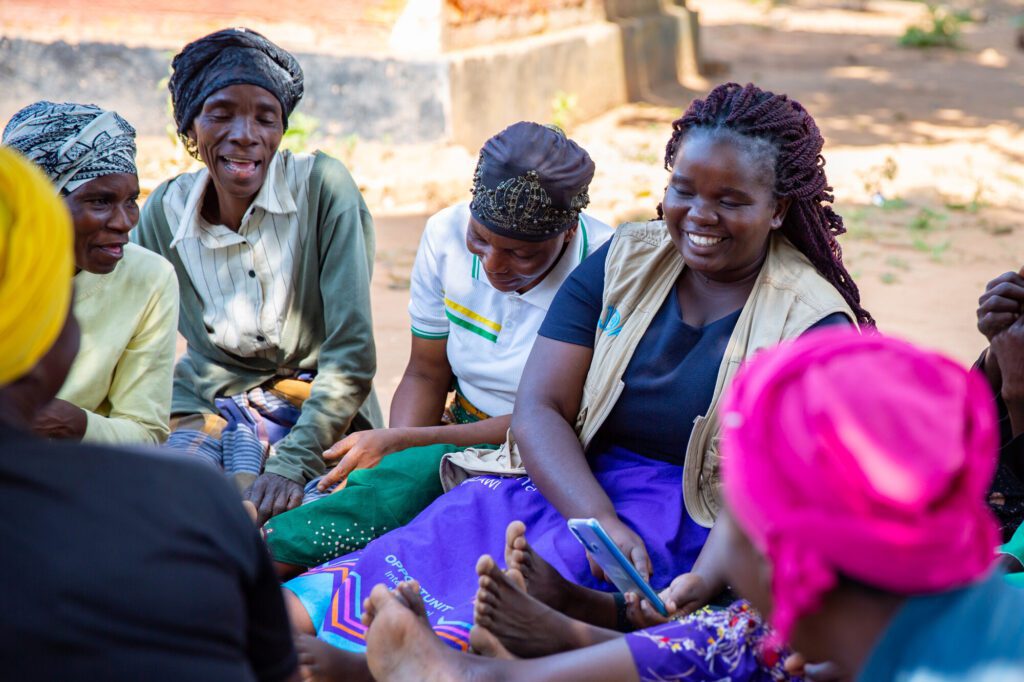Over the past year, rural farmers in Malawi have been using a generative AI chatbot named Ulangizi to get quick advice on crops and animals in their native Chichewa language. This app helps farmers receive instant information, reducing their reliance on agriculture extension workers. The nonprofit Opportunity International, which created Ulangizi, is now developing more AI-based solutions to assist impoverished communities. They recently announced three winning apps designed to help farmers with personalized advice, teachers with lesson planning, and school leaders with management tasks. These innovations aim to improve access to knowledge and resources in rural areas, even overcoming challenges like limited smartphone availability and internet connectivity.
Title: AI Chatbot Revolutionizes Farming for Rural Farmers in Malawi
In Malawi, rural farmers have embraced a new tool that’s changing the way they get support for their crops and livestock. Over the past year, these farmers have been using a generative AI chatbot called Ulangizi, which provides answers in their native language, Chichewa. Maron Galeta, a farmer from Malawi, shared his excitement: “In the past, we could wait for days for agriculture extension workers to help us. Now, with just a touch of a button, we have all the information we need.”
The nonprofit organization behind Ulangizi, Opportunity International, has big plans to expand AI solutions to other underprivileged communities. In a recent initiative, they invited humanitarian workers to pitch AI-driven ideas that could improve lives. On October 30, three winners were selected for their innovative apps designed to assist farmers and teachers in Africa. Each winning project will receive about $150,000 in funding, with the aim of reaching millions within two years.
Greg Nelson, the Chief Technology Officer of Opportunity, emphasizes the potential of these AI apps to equalize opportunities for those who have faced challenges in accessing knowledge. He says, “Since the mobile phone, this is the biggest democratizing change that we have seen in our lifetime.”
The winning apps include one that improves on Ulangizi by offering personalized farming advice based on specific data like crop history and local climate. Rebecca Nakacwa, one of the project founders, highlights the need for real-time climate understanding, stating that farmers are more worried about climate changes than pricing.
Moreover, another app aims to help teachers create lesson plans personalized for their students’ learning styles. This project is led by Lordina Omanhene-Gyimah, who identified a significant lack of resources for teachers in rural Ghana.
Finally, an app designed for school leaders will provide tools for various administrative tasks, from teacher recruitment to behavioral management. Anne Njine, a former teacher in Kenya, sees this app as a helpful assistant for school administrators.
While these apps hold great promise, there are challenges to overcome, such as limited access to smartphones and mobile data in rural areas. Nevertheless, Opportunity International believes that with the right training and support, these AI solutions can make a significant difference in the lives of thousands.
In summary, the integration of AI in rural farming and education is not just about technology; it’s about meeting the real needs of communities. The founders of these winning apps stress that they are directly working with clients to understand and solve their problems effectively.
For more insights on the impact of AI in different sectors, check out related articles in our news section.
What is the goal of your nonprofit?
Our nonprofit aims to help African teachers and farmers by using artificial intelligence to improve education and agriculture.
How does AI help teachers and farmers?
AI provides tools and resources that make teaching easier and farming more efficient, helping them succeed in their work.
What kind of training do you offer?
We offer training workshops that teach teachers and farmers how to use AI tools effectively in their classrooms and fields.
Is the training free for participants?
Yes, our training programs are free for teachers and farmers to ensure everyone has access to the resources they need.
How can I support your nonprofit?
You can support us by donating, volunteering your time, or spreading the word about our mission to help African educators and farmers.






